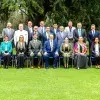The cities of the future must allow people to satisfy their basic needs, but also help them to fulfil their life purpose.
This is how Enrique de la Madrid, Director of the Center for the Future of Cities at Tecnológico de Monterrey, sees it.
“In cities, we must find the answers to needs such as housing, health or work, but also the conditions to become who we want to be, where we can develop and promote human flourishing,” he said in an interview with CONECTA.
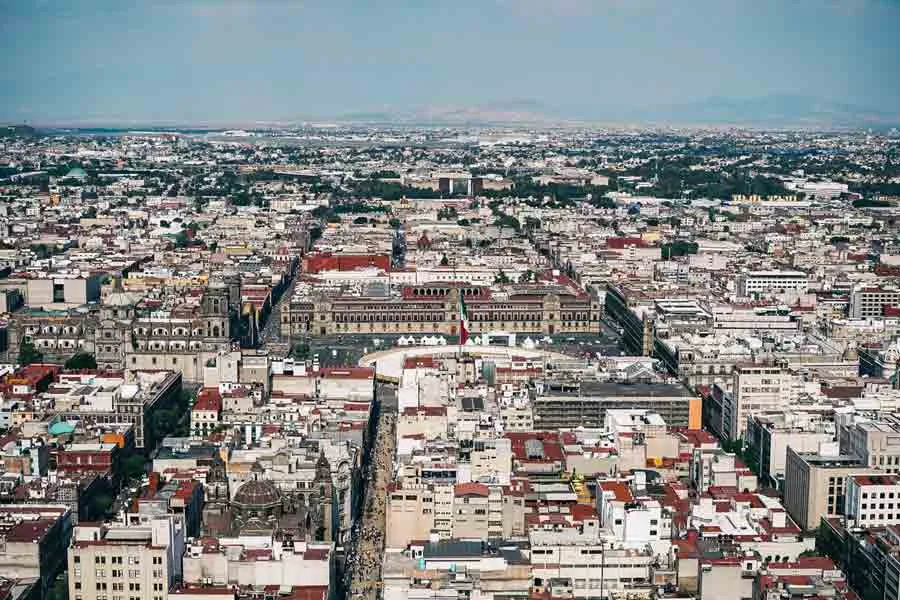
The Center for the Future of Cities is one of the efforts that Tec has proposed in its strategy for 2030, highlighted de la Madrid.
“The Tec has decided that it wants to become a catalyst, a transformer of cities and communities in the world, starting with our country.
“Our main task at the initial stage is to try to study the best practices of the best cities in the world and disseminate this information,” shared the director.
One of the actions to carry out this task will be the quarterly publication of the digital magazine Entorno y Futuro (Surroundings and Future), which was presented on October 20.
“In cities, we must find the answers to needs such as housing, health or work, but also the conditions to become who we want to be.”
Priorities of the Center for the Future of Cities
The former Mexican Minister of Tourism points out that as part of the center’s strategy, a tour of several countries was made to identify the main themes of the cities.
By collecting information and learning about the protocols of large cities such as New York, Madrid, Singapore, and Medellín, the center was able to define 10 topics on which to focus its efforts:
1. Purpose of cities in the digital economy
To determine the main activity of cities in the digital age, discover what their strengths are, and what they are evolving into.
2. Affordable housing and urban densification
It will seek to provide innovative solutions to the problems of decent housing needs within the city.
3. Mobility
“Mobility is one of the main problems; in many cities, people spend between one and two hours traveling one way and then the same again on the way back. It is wasted time, in bad conditions, and is also often unsafe,” noted de la Madrid.
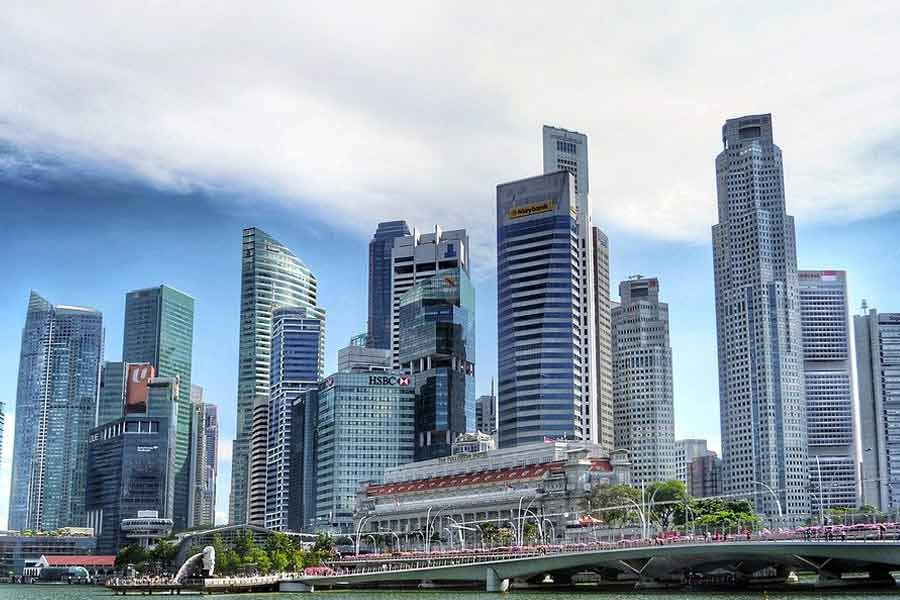
4. Resilient cities
It will address the ability to anticipate, prevent, and face challenges such as natural disasters and even pandemics, to overcome them and even come through them stronger than before.
5. Smart cities
Promote the use of information and technology to obtain that information, to have better public services and cities that are more integrated.
6. Pollution and urban sustainability
“It is an important issue in cities such as Monterrey, Mexico City, or Guadalajara, at a very critical moment where decisions have to be made on issues such as air, soil, water, and even noise pollution,” said the Director of the Center.
7. Public security
Protocols and strategies to prevent unsafe situations, improve surveillance, and act against crime through adequate urban design.
8. Urban planning
How the planning should be, with what instruments, how to do it so that it really helps to determine the purpose of cities and set medium and long-term plans.
“The purpose of the existence and participation of the Center for the Future of Cities is to gradually introduce this idea that cities belong to all of us and that we all have to work to define their purpose,” highlighted de la Madrid.
9. Funding and tax issues
“If you want better education and health systems, better streets and houses and to fight air pollution - money is required; we want to look at the topic of city finances.”
10. Governance and metropolitan coordination
The most successful cities are those in which local, municipal, state, and federal governments participate, but it is not only a matter for governments - business owners, civil society, and universities should also take part.
First advances
The Center for the Future of Cities will seek to disseminate knowledge, create platforms for the exchange of ideas and influence public policies to build environmentally and economically sustainable cities, which are much more inclusive.
To analyze and disseminate information; the center has already begun to share urban issues through its social networks, newsletter, webinars, and the digital magazine.
“There are many things that already exist, that have already been researched; what happens is this information doesn’t get any further, people don’t know and we want them to know all the things that are being researched outside the Tec, as well as those being within it,” explained de la Madrid.
Behind the development of its digital magazine Entorno y Futuro, there is a council of specialists in city issues, highlighted the Director of the Center.
“The first thing we did for the magazine was choose a very good board with around fifteen members; there are members of the Tec, such as Roberto Iñiguez, from the School of Architecture, and Alejandro Poiré from the School of Government,” he highlighted.
The council is also made up of experts in cities such as Alicia Ziccardi, Luis de la Calle, Sara Topelson, Martha Herrera, and those in charge of the subject of cities from UNAM and Colegio de México.
Expert opinion is part of the content of the magazine; for example, its first issue includes an interview with the Mexican winner of the Nobel Prize in Chemistry, Mario Molina, who recently passed away.
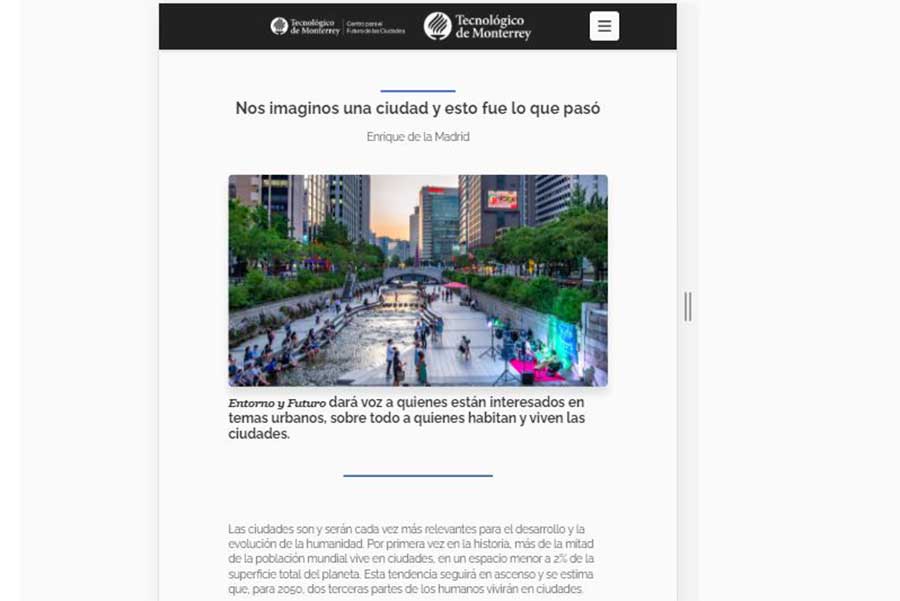
In addition to this quarterly digital publication, the center has a subscription service to a newsletter that is sent weekly called From the City.
“For practical purposes, we curate the five best items per week; you go to a page that has already selected the best for you, for example, who has the best practices in terms of attention to COVID-19,” described de la Madrid.
Webinars are held every fifteen days for the exchange of ideas and experiences, and experts are invited to propose potential solutions to the issues the center focuses on.
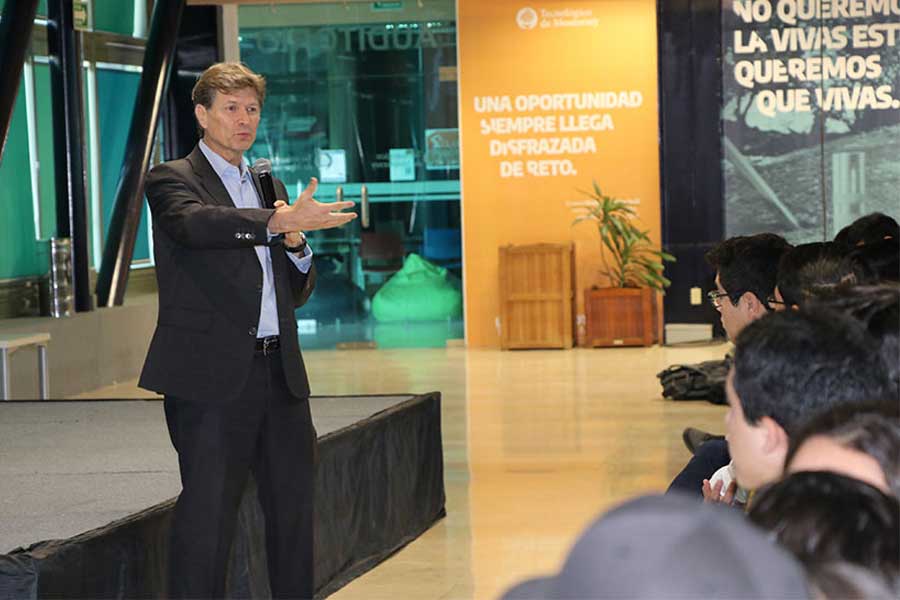
One of the projects that the center is developing is a diploma course that will be aimed at public officials and will focus on urban development areas at a municipal level.
In the near future, it is expected that the center will be able to positively influence city policies by providing consulting services to municipalities and governments.
Finally, de la Madrid stated that the center’s constant work will be to emphasize the importance of the various stakeholders in society joining forces to achieve real changes.
“Citizens, universities, business owners, and the government need to make a joint effort to transform our cities and communities.
This will make it possible to connect and humanize them, to create safe, modern, fun, and competitive spaces for everyone,” he concluded.
YOU’LL DEFINITELY WANT TO READ:



